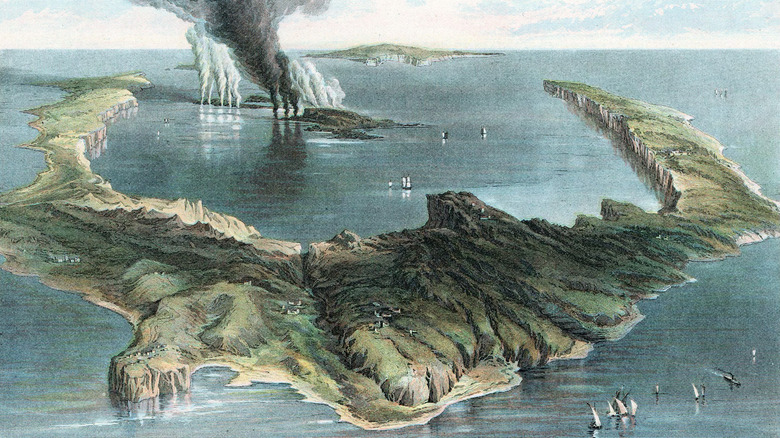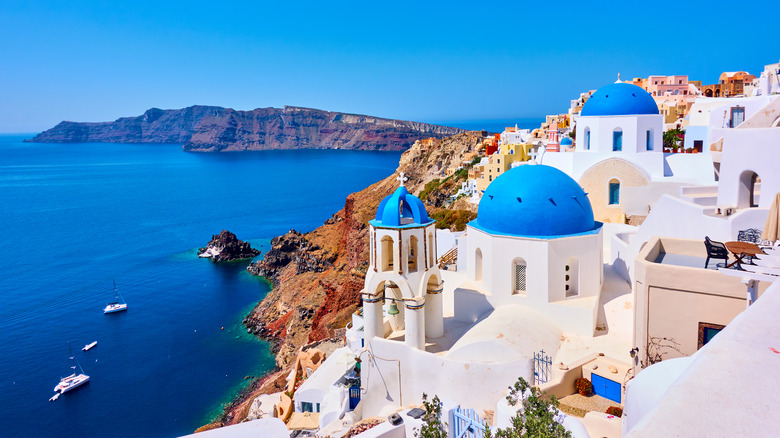Atlantis-Inspired Myths That Turned Out To Be True
Back in the third century B.C., the ancient Greek philosopher Plato wrote about the rise and fall of the city of Atlantis, as Britannica reports. The Atlanteans, Plato said, were wealthy, advanced, and ruled much of the region of the Mediterranean Sea, thousands of years before Plato lived. That is, until they were defeated by the Athenians, and then later, their entire civilization was destroyed in a series of earthquakes and sank to the bottom of the sea.
Today, historians have largely concluded that Atlantis never existed, and indeed, the myth may have been an allegory about national hubris, as Live Science reports.
However, the geological processes that Plato claimed destroyed Atlantis are real, and indeed, they've destroyed civilizations long before the philosopher lived. In fact, one civilization that was destroyed by earthquakes and tsunamis was just a stone's throw from Plato and may have inspired the legend. Further, ancient legends from places other than Greece speak of places being destroyed by earthquakes and tsunamis.
Geologists have confirmed several Atlantis-like myths
Out in the Mediterranean Sea, a couple hundred miles southeast of Athens, is the Greek island of Santorini (pictured above), alternatively called Thera. Around 1,600 B.C., a devastating volcanic eruption of unimaginable magnitude destroyed much of the island, breaking it up into the smaller pieces that remain today, as Forbes reports. As the island sank into the sea, it undoubtedly caused earthquakes felt all around the Mediterranean region. This cataclysmic event may have inspired the story of Atlantis.
A similar legend, now believed to be true, comes from ancient Hindu texts, and describes the city of Dvārakā, which was supposedly swallowed up by the sea. As UNESCO explains, archaeologists began excavating what they thought might be the remains of the city in the 1960s, and the evidence seems to confirm that the city was real and is, in fact, now at the bottom of the ocean.
Other legends of cities lost to the sea come from the South Pacific, where folk tales speak of land bridges or hunting grounds lost to the waters. Modern science believes they were likely the victims of rising sea levels at the end of the last Ice Age.

